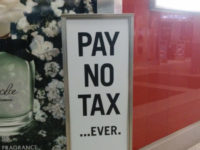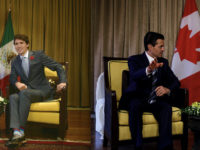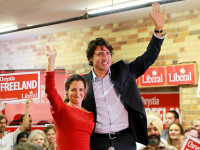Prime Minister Justin Trudeau met earlier this week with Jean-Francois Gagné, the CEO of Element AI, the Montreal-based applied artificial intelligence lab. Trudeau tweeted that the two men “talked about what Canadians are doing in AI in Montreal & across the country, and how we can keep the industry thriving.”
Post Tagged with: "trudeau"
Trudeau Puts An End to the Netflix and ISP Tax Debate: “Consumers…Pay Enough for Their Internet”
For the past two years, the prospect of creating a Netflix tax or Internet tax has been the digital policy issue that would not die in Canada. The Standing Committee on Canadian Heritage called for an Internet tax last June, the province of Quebec remains anxious to pay digital sales taxes (there is nothing stopping them from doing so now), and many creator groups continue to the call for mandated contributions on Netflix to “level the playing the field” (the level playing field argument is misleading). The uncertainty surrounding Netflix and ISP taxes has not been helped by the reopening of the issue at the CRTC after the release of the government’s digital Cancon strategy and Canadian Heritage Minister Melanie Joly’s occasionally leaving the door open to the possibility.
Closed by Default: Why is Prime Minister Trudeau Using Restrictive Terms for Flickr Image Use?
Yesterday’s post on the Canada, the TPP and intellectual property raised a concern unrelated to the content of the piece. Since updating my site several years ago, I use a Creative Commons licensed or public domain image for virtually every post, celebrating the remarkable creativity of people and organizations from around the world who make their work freely available for anyone to use. In searching for an updated image on the TPP, I encountered a problem that has arisen with increased frequency. Several governments posted relevant images from the meetings in Vietnam and the Philippines, but the Canadian images featured restrictive terms and conditions in the form of an all-rights-reserved approach.
Why Trudeau’s TPP Comments Undermine Freeland’s Credibility on Canada’s Biggest Trade Deal
International Trade Minister Chrystia Freeland has faced a challenging week given the possible collapse of the trade agreement between Canada and the European Union. Freeland and the Liberal government have worked hard to get CETA to the finish line with some changes to the investor – state dispute settlement rules (the rules should be dropped altogether) and frequent travel across Europe to garner support for the deal.
Back at home, the reaction to the CETA problems from the Conservative opposition has been embarrassing. Trade critic Gerry Ritz criticized Freeland, speaking of the need for adult supervision and calling on the government to get the job done. Freeland rightly called him out on the comments, but she could have also noted that the record suggests that it is the Conservatives that failed to get the job done on CETA. In April 2010, the Conservative government said it would be finished in 2011. In 2011, reports said it would be done in 2012. In October 2012, the projection was a deal by year-end. It took until the fall of 2013 for a ceremony marking an “agreement-in-principle”. That too proved to be premature as there was another event celebrating an official draft in 2014 followed by more legal drafting and the renegotiation of controversial ISDS provisions that led to the release of another text earlier this year. In other words, Freeland inherited far less than advertised on CETA and the Conservatives might not want to remind the public that their biggest trade accomplishment never actually involved a signed, final text.
The Ritz remarks have attracted attention, but comments yesterday from Prime Minister Justin Trudeau may have a longer and more damaging impact on Freeland.
Why the Government’s Commitment to “Open by Default” Must Be Bigger Than Open Data
This week, I was pleased to participate in a joint initiative between the University of Ottawa’s Public Law Group and iPolitics to examine the government’s Speech from the Throne from many policy perspectives. This includes contributions from Professors Mendes, Morales, Oliver, Pal, Dodek, Forcese, Chalifour, and Cairns Way. My piece (iPolitics version, homepage version) focuses on the government’s commitment to “open by default”, which appears in all ministerial mandate letters. I note that the emphasis on open and transparent government in the Speech from the Throne was both welcome and unsurprising. Prime Minister Justin Trudeau campaigned on openness and transparency with impressive commitments to transform how Canadians access government information.











